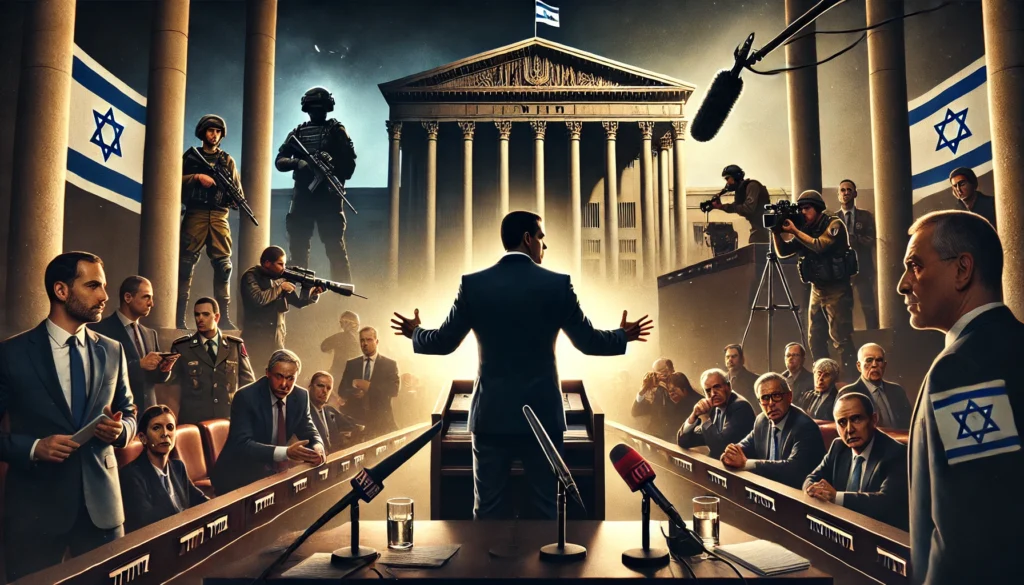Published Date: March 16, 2025 ✍️ Author: Global World Citizen News Team 🌍 Source: GlobalWorldCitizen.com
Netanyahu Faces Mounting Pressure from Courts and Opposition
On March 3rd, Israeli Prime Minister Binyamin Netanyahu faced a particularly challenging day—one that highlighted his deepening legal and political struggles.


Dismissing the allegations against him, Netanyahu lashed out at Israel’s security and intelligence officials, accusing them of conspiring against him. He compared their actions to what he called the “deep state” in the U.S., which he claimed had attempted to undermine former President Donald Trump.

This Trumpian rhetoric marks an escalation in Netanyahu’s ongoing attacks on Israel’s military and judicial institutions, a strategy that has divided the country and deepened tensions within his government.
Netanyahu’s Battle With Israel’s Security Establishment

Netanyahu has refused to accept responsibility for Hamas’s deadly attack on Israel, instead placing the blame on Israel’s military and security agencies, particularly the Israel Defense Forces (IDF) and Shin Bet (Israel’s domestic security service).

Israel’s military and intelligence chiefs have repeatedly criticized Netanyahu for:



On March 5th, Netanyahu forced out IDF Chief of Staff Lieutenant General Herzi Halevi, who had publicly accepted responsibility for the failures of October 7th. He replaced him with Eyal Zamir, a more loyal ally.
Shortly after, IDF Spokesman Rear-Admiral Daniel Hagari—who had criticized government policies—was also removed.
However, Netanyahu is struggling to get rid of two key officials:

Both were appointed by the previous government and cannot be easily dismissed, making them thorny obstacles in Netanyahu’s fight to control Israel’s security and legal system.
Corruption Allegations and a Growing Political Crisis

Netanyahu’s legal troubles have deepened with an investigation into allegations that his close advisers received payments from Qatar, which has been a key mediator in ceasefire talks with Hamas.

Attorney General Baharav-Miara has opposed Netanyahu’s efforts to weaken Israel’s Supreme Court, as well as his push to exempt ultra-Orthodox men from military service.



Could Netanyahu’s Government Collapse?
As Netanyahu tightens his grip on Israel’s security institutions, U.S. officials have begun bypassing him and holding direct negotiations with Hamas in Qatar.


“If Netanyahu cannot control the narrative, he will eventually lose control of the government.”
On March 12th, during a court hearing, Netanyahu erupted in frustration, declaring:
His words reflect the growing pressure he faces—not just in the courts, but also from political rivals, security officials, and even international allies.
With legal troubles mounting and public confidence in his leadership eroding, Netanyahu may soon face the reckoning he has fought so hard to avoid.
What’s Next for Netanyahu?





